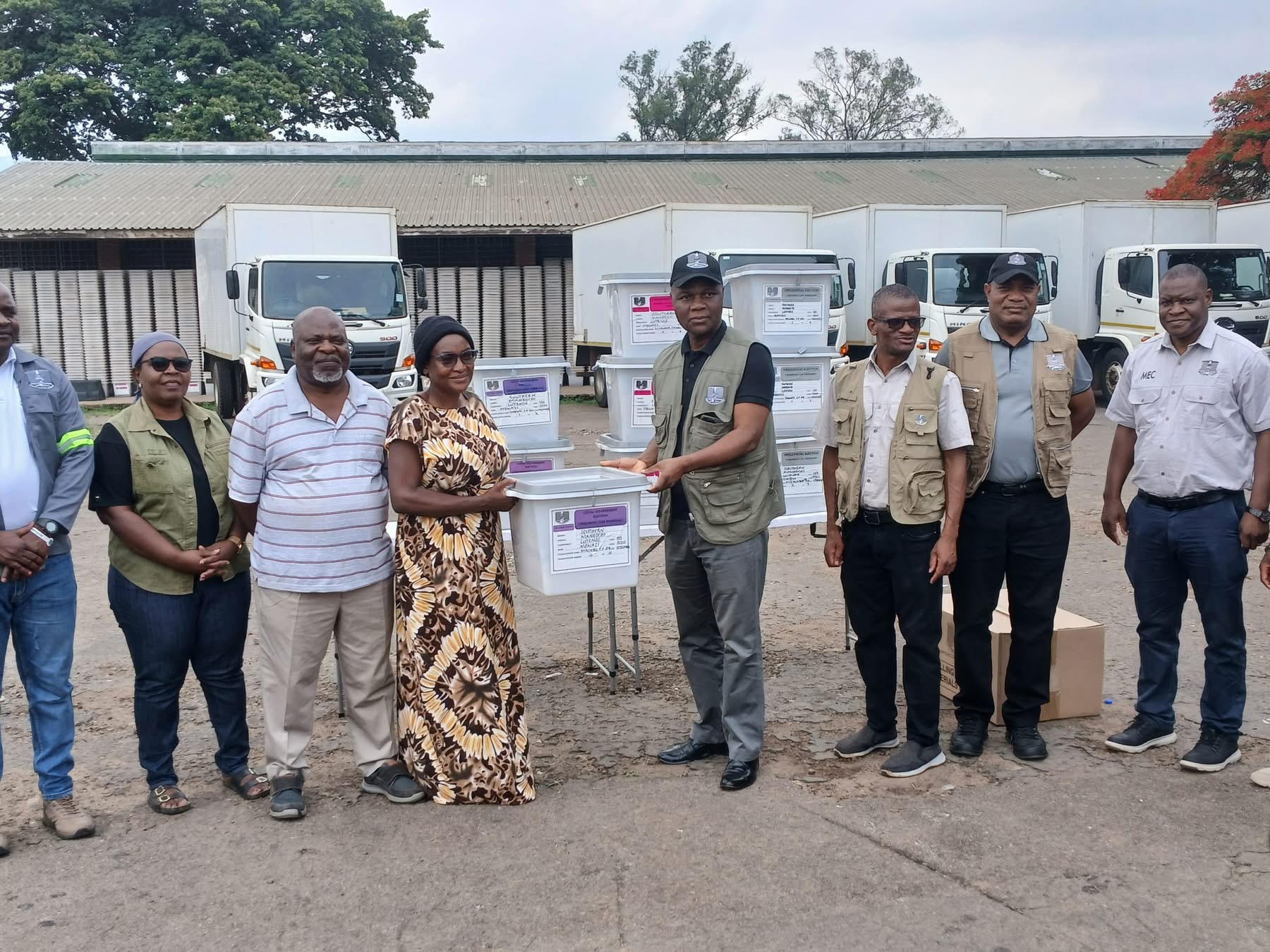
* The handover marks one of the final and most significant stages in the electoral cycle, symbolising closure, accountability, institutional transparency and assurance of checks and balances among various organs of government
* By transferring these records, the Commission ensures that the documentary trail of the people’s will through their vote is secured for reference, scrutiny, and historical archiving
By Duncan Mlanjira
Malawi Electoral Commission (MEC) is officially handing over September 16, 2025 General Elections polling records for the Southern Region to Parliament being done according to regions after already done so for the Northern Region.

Advertisement
At the handover at the Parliament warehouse in Lilongwe, Commissioner, Harry Kanjewe said the event “marks one of the final and most significant stages in the electoral cycle, symbolising closure, accountability, institutional transparency and assurance of checks and balances among various organs of government”.
“The 2025 General Election, which combined the Presidential, Parliamentary, and Local Government polls, were held in accordance with Section 67(1) of the Constitution of the Republic of Malawi,” he said.
“This section provides that the General Election shall be held on the Tuesday in the third week of September in the fifth year after the last General Election. True to this constitutional obligation, Malawians went to the polls on September 16, 2025, to exercise their democratic right to choose their leaders,” Kanjewe said.
After the September 16 elections, MEC went through a rigorous and thorough verification processes and determination of results, and proceeded to announce the official outcomes between September 20-October 2 — “successfully concluding the electoral process that had been done after months and years of meticulous preparation and implementation”.
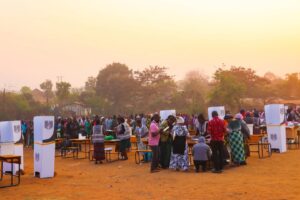

“I should, however, mention that under the prevailing law, the work of the Commission does not end with the announcement of results,” Kanjewe said. “Section 120 of the Presidential, Parliamentary and Local Government Elections Act (2023) requires the Chief Elections Officer to deliver to the Clerk of Parliament all documents forming the official record of the election — including ballot papers, records from polling stations, summaries of results, and all supporting documents.
“This requirement ensures that the record of the election is preserved, protected, and safely kept under the custody of the Clerk of Parliament for a specified period, not exceeding four months, unless a dispute arises.
“If there is an election petition, the law further requires that such documents remain preserved, by Parliament, until a final determination is made by the courts. This is not just a legal formality, but also a vital part of the democratic process that reinforces and ensures transparency and confidence in electoral administration.
“By transferring these records, the Commission ensures that the documentary trail of the people’s will through their vote is secured for reference, scrutiny, and historical archiving.”
He emphasised that the polling records “are comprehensive as they include sealed ballot boxes from polling stations, containing unused and used ballot papers, counterfoils, and spoilt/cancelled as well as void ballots”.
“They also include the record of polling processes Form 17 and all official result forms —: Forms 18A to 18C (from polling stations), Forms 19A to 19C (constituency and ward records of results), and Forms 20A to 20E (summaries and notifications of the effect of void votes).
“In addition, complaints and incident logbooks from polling stations (Form 16), tally centres, and the National Tally Centre records are part of this collection.
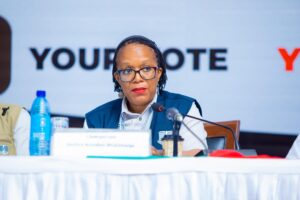
MEC chairperson Justice Annabel Mtalimanja
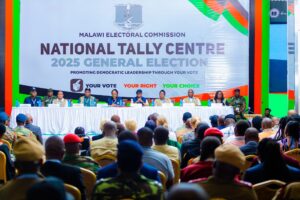
“This comprehensive documentation represents not just data, but the very essence of the Malawian democratic process. Each form, ballot box, and envelope is a record of participation — of a citizen’s choice, a polling officer’s accountability, and the collective will of Malawians that voted.”
He thus acknowledged “the tireless work” by MEC staff across all levels — from polling station and constituency tally centre staff, district election staff to warehousing staff, regional election staff and their managers, and the Commission’s Head Office staff and Executive Management.
“Their commitment to maintaining the integrity of the electoral processes from start to finish, by processing and preserving the documents this far, deserves commendation.
“The Commission further appreciates the collaboration of the Clerk of Parliament and her team, for always working closely with us to ensure that all statutory obligations and procedures in the preservation of election records are met.
“May this act serve as a reminder that democracy is not only about casting votes but also about maintaining integrity, transparency, and accountability in every stage of the process — from preparation to preservation.
“As Parliament will be receiving these documents and materials, allow me to request you to properly and carefully preserve them, because some of them may have to be accessed and tendered in court as exhibits due to some litigation on election results.
“As we meet today the Commission is aware of a number of electoral petitions that have been filed with the High Court, challenging the Commission’s decisions on some of the election results that have been declared.
“The Commission therefore wishes to request Parliament to preserve the records for such areas,” he said while indicating further that as part of MEC’s “learning efforts and quest to significantly reduce the number of void votes in subsequent elections and that every vote should count, at the end of the period for preservation of the documents being handed over today, we will request Parliament to retain the void votes”.
“Our intention is to use the same to draw lessons and thereafter use them to educate eligible voters, political parties, the media and civil society organisations (CSOs) that are involved in civic and voter education.
“The Commission, therefore, looks forward to continue working with Parliament, among others on matters relating elections, now and in future.”
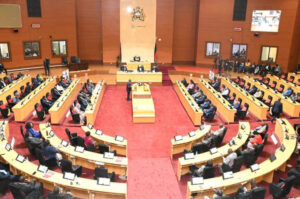
The august House
Meanwhile, for the 2030 general election, MEC says there will be no creation of new constituencies and wards as the new electoral laws provide that the exercise should be done once in every 10 years.
This was said by MEC spokesperson, Sangwani Mwafulirwa adding that as the last exercise was carried out in 2022, the next one will be in 2032 — thus the September 17, 2030 general election there will be 229 constituencies and 509 wards.
“Malawi’s electoral boundaries have evolved over time to reflect demographic and political changes,” he said. “In 1964, the country had 53 constituencies which increased to 63 in 1973. In 1983 the figure was revised upwards to 101 before hitting 112 in 1987.
“The final revision before re-adoption of multipartyism was in 1992 whereby the total number of parliamentary seats rose to 141. In preparation for the first Presidential and Parliamentary Elections under multiparty era in 1994, demarcation was conducted.
“The total number of constituencies was revised to 177 in 1993. The next revision of number of constituencies was in 1998 where the total number of constituencies increased to 193.
“After 23 years, the commission revised the number of constituencies in 2022 from 193 to 229,” said Mwafulirwa, who was recognised by Public Relations Society of Malawi (PRSM) as Public Sector PR Practitioner of the Year while MEC received the Excellence in Public Sector Communication Award during the society’s annual general meeting held on November 1.

Award winning Mwafulirwa
Mwafulirwa who retained the title, went on to be named the Overall PR Practitioner of the Year, the highest individual honor bestowed by PRSM.
The PRSM Awards celebrate excellence and innovation in communication across sectors, recognising individuals and institutions that have made outstanding contributions to the advancement of public relations practice in Malawi.



Advertisement
